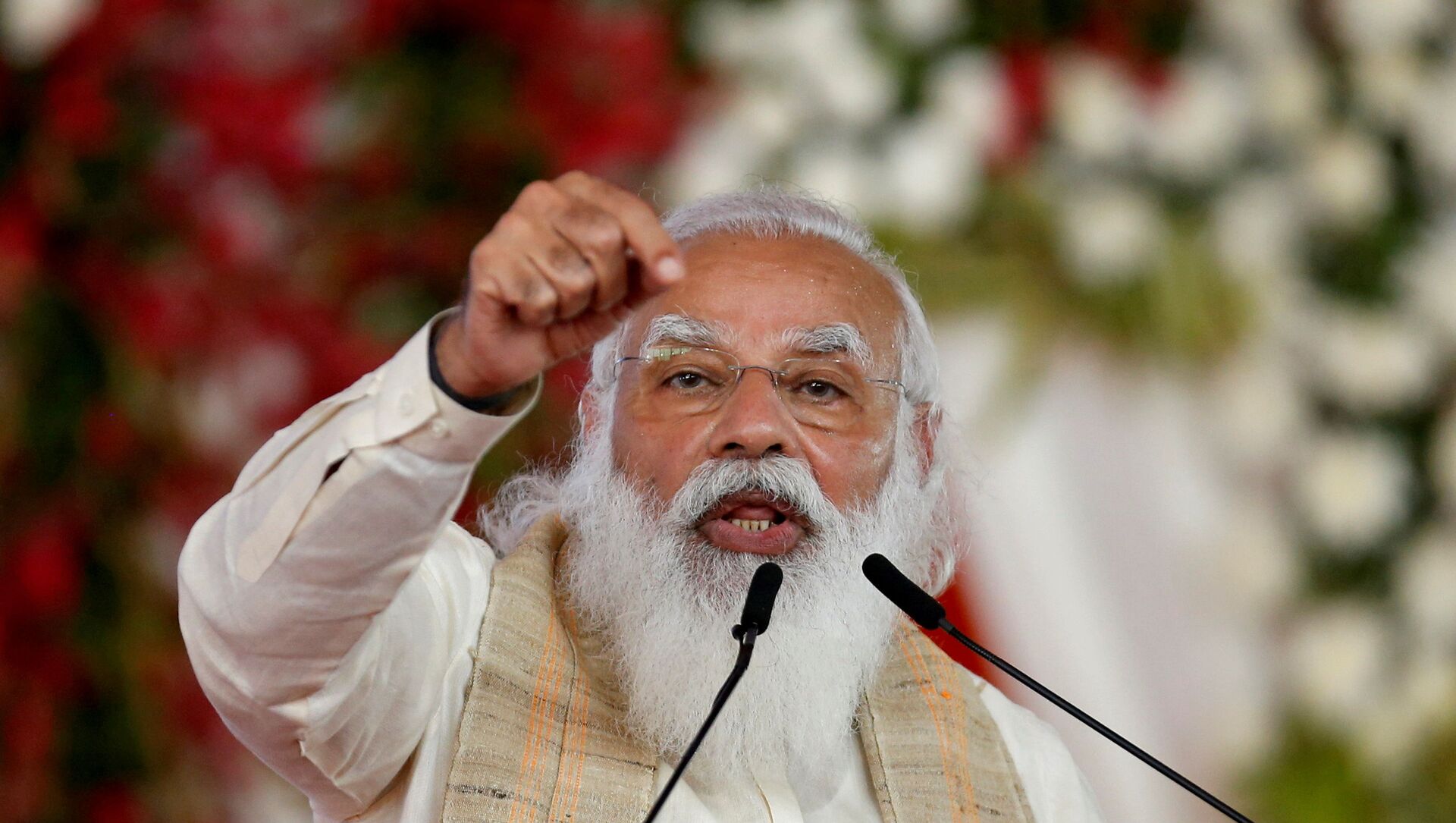In a significant U-turn, Prime Minister Narendra Modi on Monday evening announced that procurement of COVID-19 vaccines from domestic and global manufacturers will be centralised instead of done locally by each state.
The step, which came as a big relief for states suffering vaccine shortages, is not the first time the central government has backtracked on a decision after calls from the opposition to do so.
Here is a list of five such decisions that the Modi government has had to reverse after pressure from the courts, opposition parties and people alike.
Vaccine Policy
In an address to the nation on Monday evening, Prime Minister Modi announced that his government will procure and distribute vaccines to state governments for inoculation free of charge for all above the age of 18.
The government made a U-turn from its earlier vaccine policy that required state governments to make global tenders and compete with each other in the international market to procure the vaccine.
This "faulty" policy was opposed vehemently by the opposition parties and people after huge shortages of jabs caused the vaccination campaign to grind to a halt in several states.
Wrote to 11 CMs in the spirit of Cooperative Federalism. Quite unfortunate that Centre absolves itself of its duty to procure vaccines, ensure free universal vaccination. United effort to jointly pursue our genuine demand is the need of the hour, so that Centre acts immediately. pic.twitter.com/ILvEFYSpRu
— Pinarayi Vijayan (@vijayanpinarayi) May 31, 2021
Towns and cities across India, including the capital Delhi, were compelled to keep their vaccination centres closed because of the unavailability of jabs. India's Supreme Court was also aware of the shortfall and made scathing observations besides asking the government to file a reply on the government's vaccine policy.
Cancellation of Board Examinations
In March, the federal government announced that all pupils in the 10th and 12th grades will have to appear in person for examinations in centres that will be set up across the country in May and June.
More than 1.2 million grade 12 pupils were required to report to examination centres for the Central Board of Secondary Education examinations, which marks a milestone in one's academic career in India.
Another 2.15 million grade 10 pupils in the country were candidates for examinations conducted by the federal Board of School Education and nearly 1.5 million teachers and instructors were required for the examinations to be conducted.
In the light of the devastating Corona second wave, conducting #CBSE exams must be reconsidered. All stakeholders must be consulted before making sweeping decisions.
— Rahul Gandhi (@RahulGandhi) April 11, 2021
On how many counts does GOI intend to play with the future of India’s youth?
There were mounting concerns among parents about their children's safety as well as among teachers after the second wave hit the country and took a heavy toll.
#CancelAllBoardExams #dontpostponeboardexams pic.twitter.com/8m2WMAn7Ql
— #CancelBoard exams2021 (cbse) (@CbseBoardEXAMs) April 18, 2021
After the government's decision not to hold exams virtually was opposed by people, with several online and offline campaigns against it, the government was pressured to review its decision and reverse it.
#CancelAllBoardExams #CANCEL12THBOARDEXAM2021 @cbseindia29 @PMOIndia @DselEduMinistry pic.twitter.com/Mg5GNHTbI4
— #CancelBoard exams2021 (cbse) (@CbseBoardEXAMs) April 26, 2021
The education ministry took back its orders and cancelled the exams altogether on 1 June, working out elaborate parameters to assess children on the marks obtained in online classes.
Vaccine Pricing
The cost of vaccines being produced by the Serum Institute of India (SII) - one of only two suppliers of COVID-19 vaccines in the country - came under the spotlight after huge discrepancies were noted.
The cost of Covishield vaccine, being made by SII, was initially $5.49 for state governments and $8.24 for private hospitals rather than the central government's procurement price of $2.06
Massive protests followed as the federal government was accused of helping the SII to profiteer off vaccines during the pandemic.
One nation, one party, one leader shouts BJP all the time but to save lives they can’t have one price for vaccine.
— Mamata Banerjee (@MamataOfficial) April 22, 2021
Every Indian needs free vaccine, regardless of age, caste, creed, location. GoI must fix ONE price for Covid vaccine irrespective of who pays— Centre or the States.
In the wake of the uproar by opposition parties and the public, the government was compelled to intervene and the SII rolled back its prices, saying that the state governments could buy the vaccine for $4.12.
Fast-Tracking Approval to Foreign Vaccines
Having previously been reluctant to approve foreign manufacturers of COVID-19 vaccines, the government announced a decision to fast-track the formalities involved.
The federal government had refused to grant permission to foreign drug manufacturers to distribute vaccines in India during the first wave of COVID-19 last year.
With a limited supply of domestic vaccine production, the country faced a huge shortage of vaccines during the second wave of COVID-19 in May this year.
Modi Govt’s non vaccination strategy is a dagger in Bharat Mata’s heart.
— Rahul Gandhi (@RahulGandhi) May 31, 2021
Tragic truth.
The government announced on 1 June that it will fast-track approval to foreign drug companies whose COVID-19 vaccines have already been approved by drug certification agencies of the United States, United Kingdom, Japan, European Union and the World Health Organisation.
Decision to Impose First Lockdown in 2020
As COVID-19 hit developed nations in January last year, the Modi government appeared to be following a policy of wait-and-see. In February last year, the opposition parties got together to demand a strict lockdown in the country and urged the government to suspend travel from the pandemic-hit nations including the US and the UK.
It was after a sustained campaign from opposition forces in the country, that the Modi government reversed its policy from asking people to observe a "voluntary lockdown" to a government-enforced "complete lockdown" for a period of two months in March 2020.





